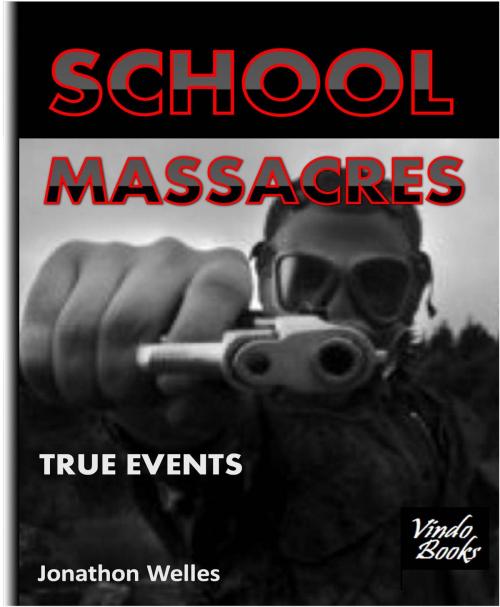School Massacres
True horror on a Kobo
Comics & Graphic Novels, Horror, Nonfiction, Social & Cultural Studies, Social Science, Crimes & Criminals, Murder, True Crime| Author: | Jonathon Welles | ISBN: | 1230000189255 |
| Publisher: | Vindo Books | Publication: | September 27, 2013 |
| Imprint: | Language: | English |
| Author: | Jonathon Welles |
| ISBN: | 1230000189255 |
| Publisher: | Vindo Books |
| Publication: | September 27, 2013 |
| Imprint: | |
| Language: | English |
There seems to be at least one high school shooting every year in America, where a lone gunman enters a school they attend and randomly opens fire on innocent students and teachers. One of the most prominent school shootings was that at Columbine High School, near Littleton, Colorado. On Tuesday, April 20, 1999, students Dylan Klebold and Eric Harris murdered 12 students and a teacher) on the school campus before committing suicide - 24 other peoples were wounded. Inner-city or urban schools are more likely than other schools to report serious violent crimes. School shootings outside America may take on more national or religious overtones, like the Mercaz HaRav massacre. School shootings account for less than 1% of violent crimes in public schools, with an average of 16.5 deaths per year from 2001–2012 in America. Some researchers claim that media coverage encourages school shootings, although a more likely explanation is because the reporting follows the events in question. On April 16, 2007, Seung-Hui Cho killed 32 people at Virginia Tech before he committed suicide. Maybe because of extensive media coverage of the Virginia Tech tragedy, several students across America committed violent offenses or threatened to do so in their schools. However, the press would likely have been faulted if it did not cover serious threats to public safety, like the said Virginia Tech and Columbine massacres.
School shootings are a topic of intense interest in America. Though companies like MOSAIC Threat Assessment Systems retail products and services designed to identify potential threats, a thorough study of United States school shootings by the U.S. Secret Service warned against the belief that a particular "type" of student could be a perpetrator. Any profile would be too general and fit too many students to be useful, and probably would not apply to a potential perpetrator. Many of these gunmen lived with both parents in "an ideal, All-American family." Some were children of a divorce, or they lived in foster homes. A few were loners, but most of these maniacs had close friends.
This book details school shootings that shocked the world, and also details ones that were prevented...
There seems to be at least one high school shooting every year in America, where a lone gunman enters a school they attend and randomly opens fire on innocent students and teachers. One of the most prominent school shootings was that at Columbine High School, near Littleton, Colorado. On Tuesday, April 20, 1999, students Dylan Klebold and Eric Harris murdered 12 students and a teacher) on the school campus before committing suicide - 24 other peoples were wounded. Inner-city or urban schools are more likely than other schools to report serious violent crimes. School shootings outside America may take on more national or religious overtones, like the Mercaz HaRav massacre. School shootings account for less than 1% of violent crimes in public schools, with an average of 16.5 deaths per year from 2001–2012 in America. Some researchers claim that media coverage encourages school shootings, although a more likely explanation is because the reporting follows the events in question. On April 16, 2007, Seung-Hui Cho killed 32 people at Virginia Tech before he committed suicide. Maybe because of extensive media coverage of the Virginia Tech tragedy, several students across America committed violent offenses or threatened to do so in their schools. However, the press would likely have been faulted if it did not cover serious threats to public safety, like the said Virginia Tech and Columbine massacres.
School shootings are a topic of intense interest in America. Though companies like MOSAIC Threat Assessment Systems retail products and services designed to identify potential threats, a thorough study of United States school shootings by the U.S. Secret Service warned against the belief that a particular "type" of student could be a perpetrator. Any profile would be too general and fit too many students to be useful, and probably would not apply to a potential perpetrator. Many of these gunmen lived with both parents in "an ideal, All-American family." Some were children of a divorce, or they lived in foster homes. A few were loners, but most of these maniacs had close friends.
This book details school shootings that shocked the world, and also details ones that were prevented...















